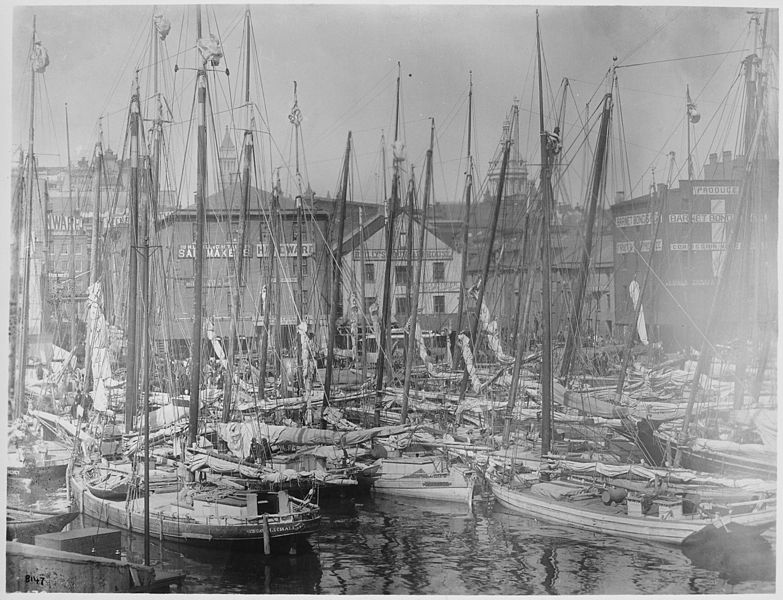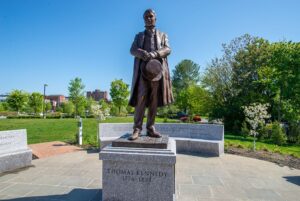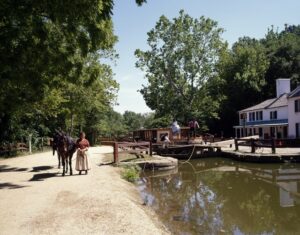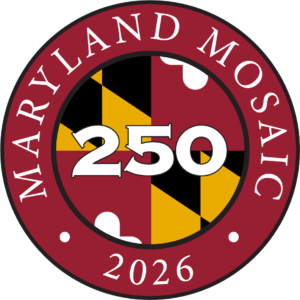Faced with discrimination and large job loss among Black workers, Baltimore-born Isaac Myers (1835-1891) leads his Colored Caulkers Trade Union Society to purchase a dockyard and railway that they name the Chesapeake Marine Railway and Dry Dock Company. Within a few months, the dockyard employs 300 Black workers and helps create the first Black labor union movement.
Myers, born free, receives some education and becomes a successful caulker, filling the seams in wooden ships on the Baltimore waterfront. During the Civil War, he finds other work but returns to caulking only to find that a white workers’ strike causes many Blacks to lose their jobs.
Myers promotes a Colored Caulkers Union that attracts the attention of the National Labor Union (NLU), the largest labor movement in the country. Myers’ union is invited to the 1869 National Labor Convention in Philadelphia and the Colored National Labor Union joins NLU ranks. Within two years, however, more discrimination causes Myers’ Union to collapse. His national prominence lost, Myers works as a U.S. Government customs clerk among other positions in his later years.






